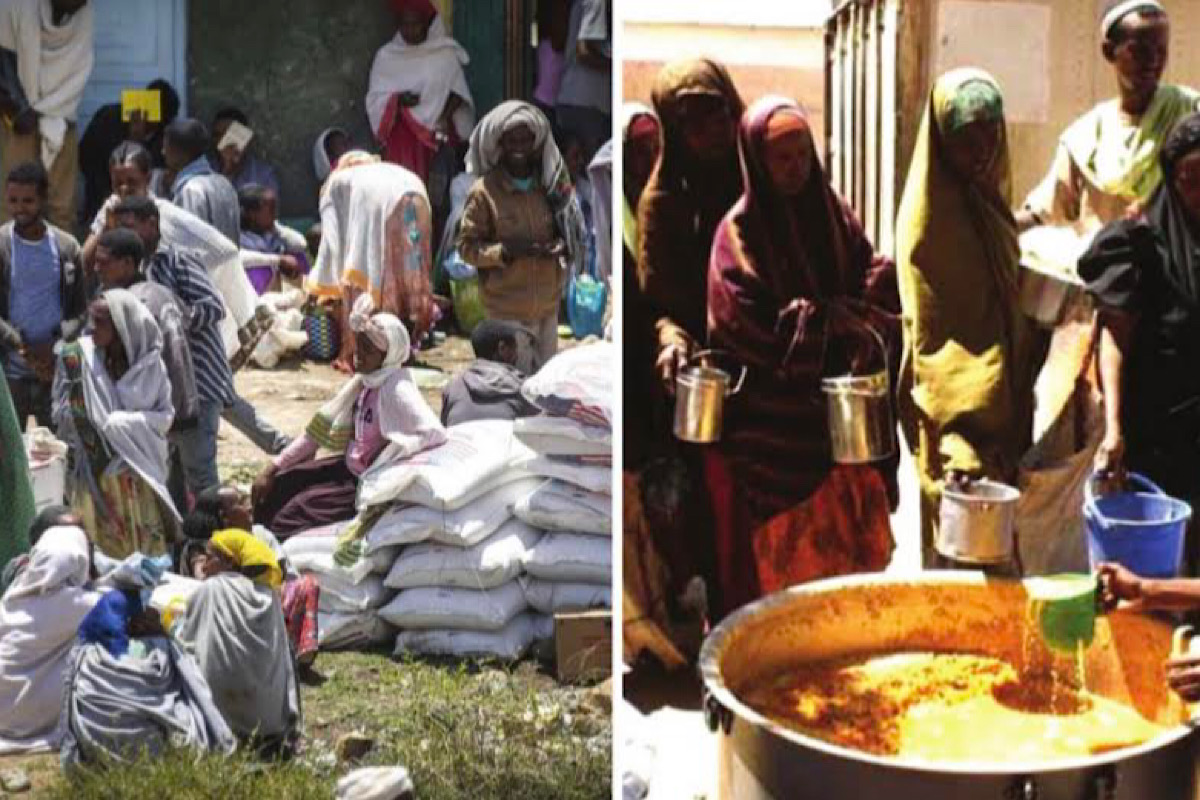At the beginning of this year, the World Economic Forum’s annual meeting at Davos in Switzerland, saw global leaders voice concern for humanity. Global cooperation is being replaced by separation and isolation. Fraternity is giving way to enmity.
Hostility among nations brings in disaster for humanity. We must learn these hard lessons from history. The forum called for greater cooperation among nations for the sake of humanity and shared prosperity.
The same concern was voiced by Rabindranath Tagore in the early part of the twentieth century in his writings and in his lectures.
The enemy of humanity, Tagore said, is the pursuit of macho nationalism, exemplified by the European nation states. Nation states were thought to be the most ideal machinery for promoting human prosperity.
Empires collapsed and out of their debris nations emerged as political entities of people encapsulated in a territory. The sense of nationhood bound people together in a particular territory. ‘We and they’ divided humanity.
People morphed in a nation were drugged by the intoxicants of racial supremacy. They were taught not only to sacrifice their lives and but also to kill others for the sake of their nation.
Europe was the pioneer in establishing such nation states to pursue nation building driven by a collective sense of pride that united communities of people in the name of nation.
Architects of nation states instilled in the people’s minds a sense of uniqueness about their races, as if they were God’s chosen people.
Hitler’s Nazism and Mussolini’s fascism are noxious ideologies rooted in racial superiority. This kind of inhuman ideology turns each nation into a belligerent entity.
People are fed with fiction of their past glories to persuade them to fight and invade other nations. Each nation began to join the rat race to become the strongest and to dominate the world.
Science and technology that flourished in Europe in the eighteenth century helped them to manufacture killing machines. Nations began to invade their neighbours to become superpowers. The world was fragmented. Hostility among nations grew.
The fragmentation of the world is causing harm to humanity. The Davos Forum calls for greater cooperation among nation states to solve the problems of world. Problems faced by the citizens are not in all cases being created within their national boundaries. Many are created elsewhere, in distant geographies. So, we need global cooperation to solve local problems.
Take the case of sub-Saharan Africa. Ethiopia, Somalia, Mali, and Sudan are now suffering from a severe food crisis. People are dying for lack of food. Widespread famine in Sub- Saharan Africa is just knocking at their doors. These countries are poor because imperial exploitation in the pursuit of nationalism made them so and now their poverty is being deepened by climate change.
The IMF has recently said that these African countries are suffering the worst-ever food crisis in recent years because of climate change. These poor nation states are not causing climate change; the villains are the rich industrialized countries of the West, closely followed by emerging economies.
‘Nation first’ is the call of all nation states. GDP growth at any cost is their goal. National pride is paramount.
In pursuit of mindless nationalism, global humanity is suffering. Problems are seemingly local but their roots lie elsewhere. Take another example, of the ongoing war in Ukraine triggered by the Russian invasion.
National pride is the driving cause for the war. Russia or USled-NATO, it’s all a show of power. The ground of war is Ukraine.
Many countries are suffering from a 3Fs crisis as a result of the ongoing war: food, fertilizer and fuel. Sudden rise in cost of living caused by the Russian invasion of Ukraine has brought unspeakable miseries to millions of people all over the world.
So, we need a global solution for local problems, whether it’s climate change, the war in Ukraine or global terrorism. It’s time for us to reflect on the cruelties of macho nationalism. We fought two global wars in the last century in the name of nationalism. Humanity suffered immensely.
We are fortunate that till date, a third world war has not taken place to destroy us. But the local and regional wars, internal strife, communal riots, ethnic cleansing and terrorism are still killing millions of our fellow beings. These human miseries are the result of proxy wars between superpowers.
The call at the WEF meeting to end fragmentation resonates with Tagore’s philosophy of internationalism. Tagore voiced his concern against fragmentation of world humanity into pieces of belligerent nation states.
These nation states promote nationalism as their goal. Tagore’s idea of internationalism is not about global governance by dismantling all nation states and surrendering national sovereignty to a global authority.
His philosophy of internationalism centres around cooperation, understanding, mutual respect, pursuit of unity of mankind, and peace and prosperity for all on this planet.
Fragmentation in the name of nation or race: America first, Brexit, white supremacy, xenophobia, and racism are no less dangerous to humanity than any global pandemic.
Almost a hundred years ago, Tagore lectured in Japan on the disastrous side of nationalism. His idea of internationalism calls for more global inter-connectedness in place of fragmentation, more unity in place of isolation.
(The writer, a former Fulbright Scholar, is Associate Professor, Ananda Chandra College, Jalpaigur)












